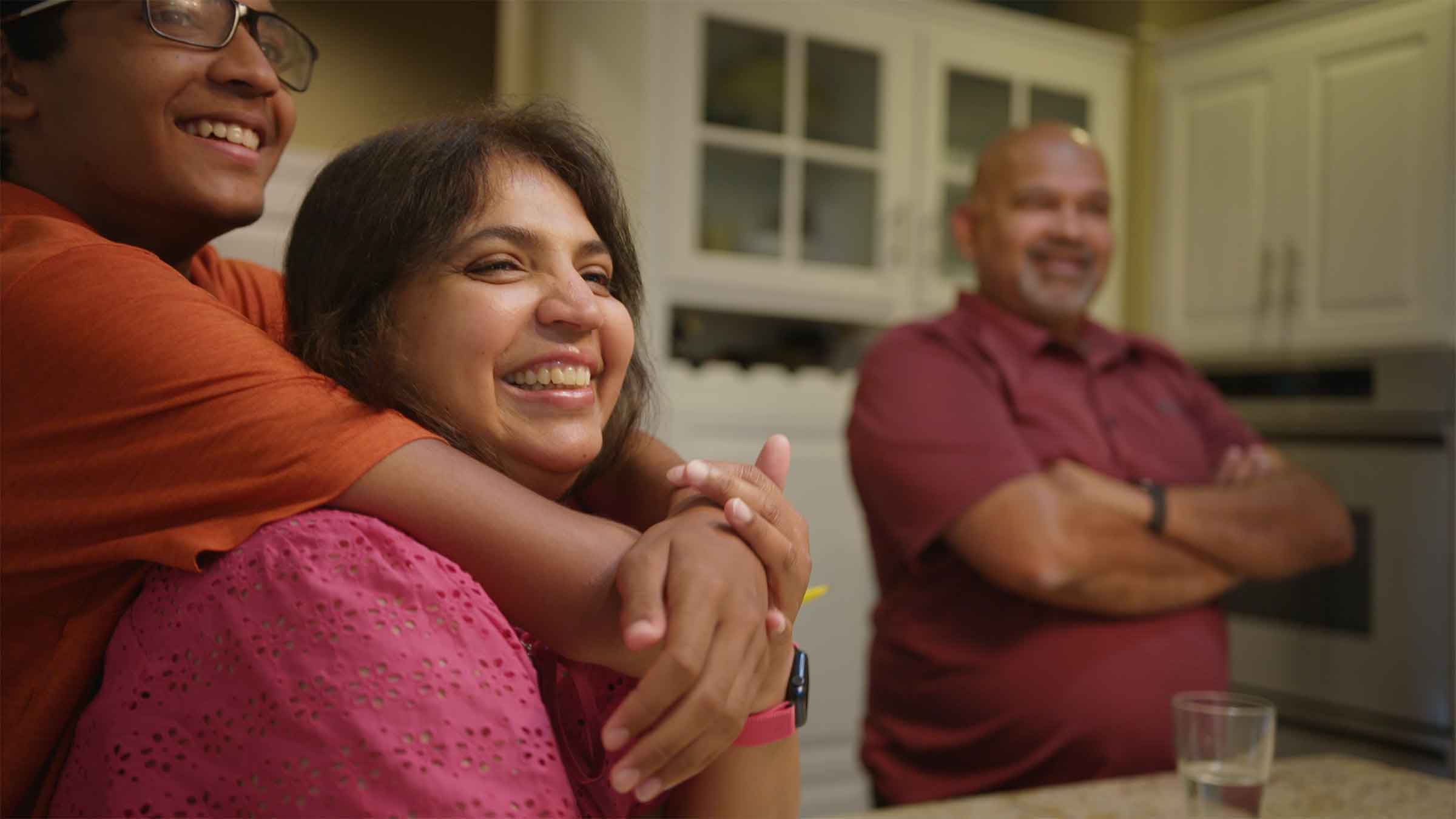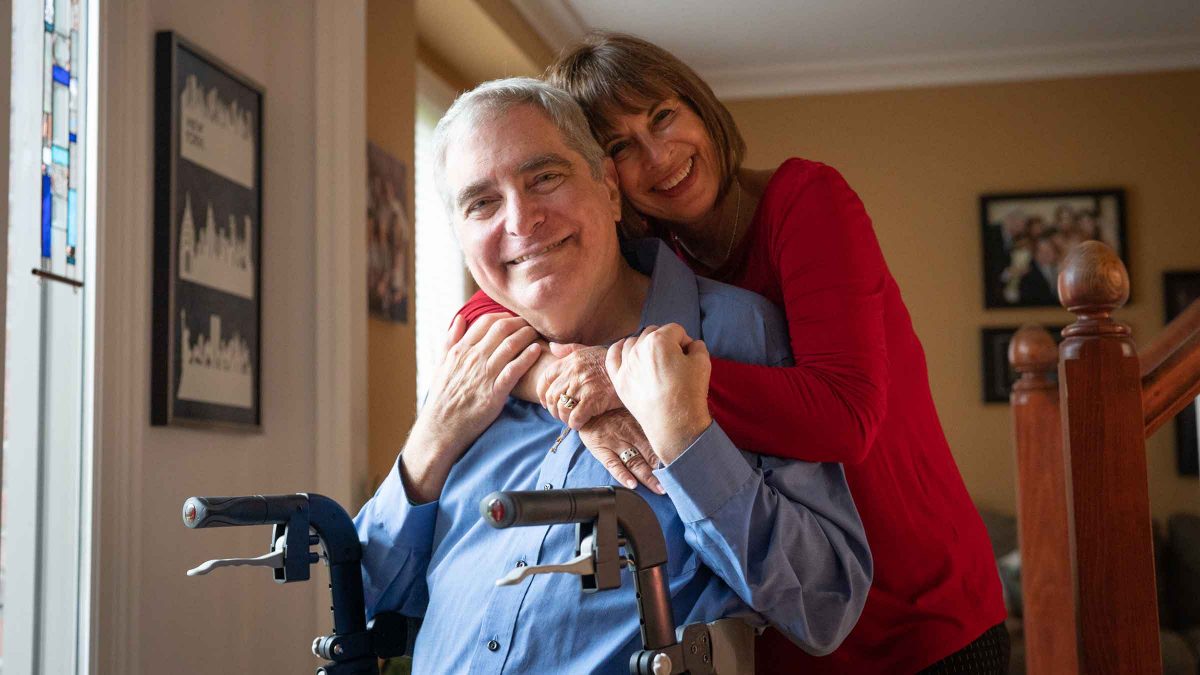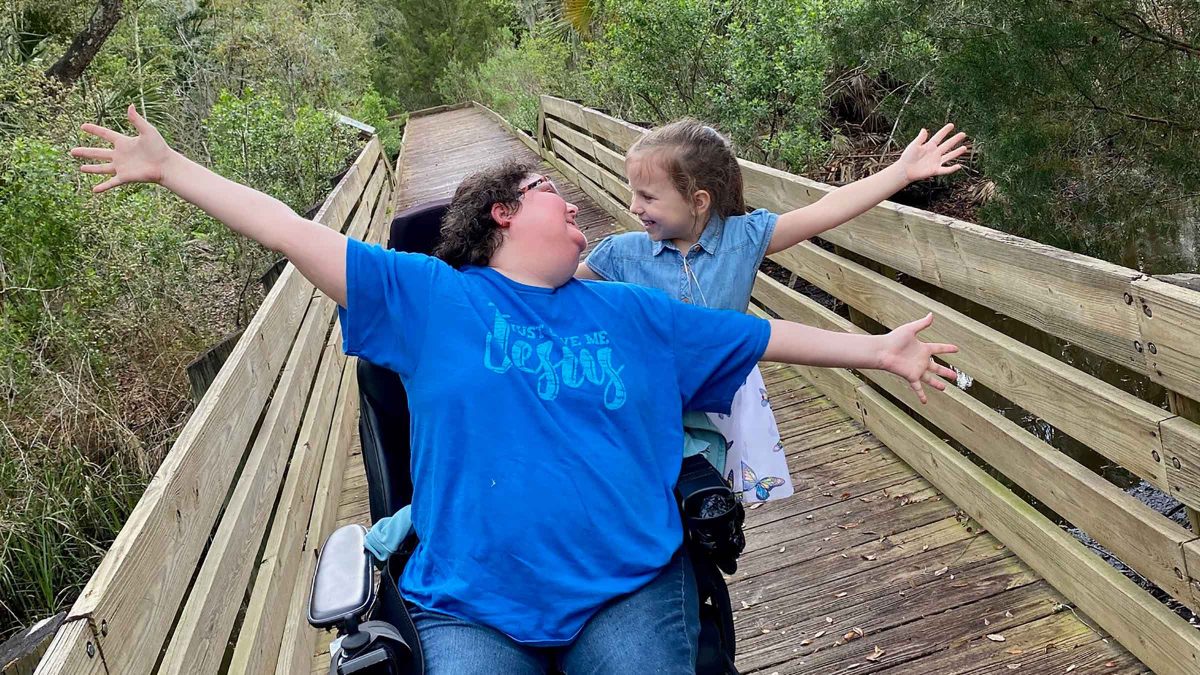Battling Loneliness as a Spouse Caregiver

CaringBridge Staff | 03.06.24
Caring for a spouse through a health journey is an act of love and commitment. However, this role may feel overwhelming.
As a spouse caregiver, you have many responsibilities, such as coordinating medical appointments, assisting with daily care and providing emotional support. Because of this, the roles you once shared with your partner shift dramatically.
This can lead to feelings of isolation, not just from the world around you but from the person you’re caring for. Let’s dive into the nuances of the loneliness experienced by partners providing care. We’ll also examine the reasons behind such feelings and share strategies for effectively managing these difficulties.
What Is Spouse Caregiver Loneliness?
Spouse caregiver loneliness describes the feelings of isolation experienced by people who provide care for their partner who is on a health journey. From caring for a partner with cancer to supporting a partner with dementia, the range of experiences is vast.
Shifting roles from a partner to caregiver can deeply impact your relationship’s dynamics. As the relationship changes, it’s normal to miss or grieve the old dynamic. This shift can lead to feelings of disconnection, even between partners who constantly spend time together.
What causes spouse caregiver loneliness?

Spouse caregiver loneliness is caused by many factors, and it extends beyond the absence of social interaction. The experience often presents itself in layers, encompassing emotional, environmental, and at times, physical solitude.
As a spouse caregiver, you may notice that the role touches many (or maybe even all) aspects of your life. This leaves little room for you to have personal time or external social interactions – even simple things like finding time to eat breakfast in the morning or calling a friend to catch up. This experience can amplify feelings of isolation and loneliness.
Spouse caregiver loneliness is normal, especially as some people begin to feel excluded from their previous support systems. This occurs due to various factors, such as:
- Isolation from friends and family due to time-consuming caregiving responsibilities
- Burnout from the demand for physical, emotional and logistical support
- Resentments about the imbalances in the relationship and the overwhelming nature of caregiving tasks
- A decline in emotional and physical intimacy, which can lead to a sense of disconnection from your partner
- Grieving the loss of the relationship as it was known and your anticipated shared future
These elements lead to a deep feeling of isolation that numerous caregivers find difficult to express, much less to pursue assistance for. Many caregivers fear judgment or misunderstanding from those around them.
Signs of Spouse Caregiver Loneliness
Spouse caregiver loneliness can manifest in various ways, reflecting the diverse experiences of caregivers. Common signs include:
- Withdrawal from previously enjoyed activities or hobbies
- Feeling disconnected or out of place, even in familiar social settings or within the relationship
- Feeling conflicted, confused or guilty— you love your partner while you might simultaneously have negative feelings regarding your role as caregiver
- Feeling emotional signs, such as persistent sadness or a general sense of melancholy
- Experiencing physical symptoms, like changes in sleep patterns or appetite (these symptoms can also indicate underlying emotional distress)
Acknowledging these signs is the first step toward addressing the loneliness that accompanies spouse caregiving.
How to Battle Spouse Caregiver Loneliness
Here are some ways to combat the loneliness of being a caregiver and reconnect with your partner and your community. These are not one-size-fits-all, so choose the ones that feel right for you.
Understand that your feelings are valid

While you’re in a caregiving role, validating your feelings is important for emotional health. Recognize that the emotions you’re encountering are not just legitimate but also a natural aspect of providing care.
Whether you’re experiencing grief, sadness, resentment or other difficult feelings, self-compassion is essential for dealing with the emotions of caregiving. It can help you stay in tune with your own needs, even when it feels like you have given all of yourself to your partner.
Attending to your emotional health is equally important as the physical support you offer, and validating your emotions is an important part of your role.
Look into online or in-person support groups
Seeking support is a testament to strength, not a sign of weakness. It’s a proactive step towards acknowledging that the burden of caregiving is not meant to be carried alone. And while many family caregivers may not have the time or resources to join an in-person support group, virtual, no-cost options can be found online.
To start, consider joining a caregiver support group, either online or in your local community. These connections provide practical tips, emotional solace and sometimes a much-needed laugh or cry.
Discovering a community underlines the notion that although your caregiving path is unique, you’re not walking it in isolation.
Consider therapy or counseling
If feasible, therapy offers a structured environment where you can unpack the complexities of your emotions, guided by a professional who understands.
Therapy or counseling can provide a safe space for honest reflection and healing, either individually or as a couple. Additionally, it presents coping strategies customized to your circumstances. This allows for more efficient stress management and a better balance between caregiving and personal health.
Plus, many mental health professionals offer telehealth options so that you don’t have to worry about making an in-person appointment.
Tip: Finding a therapist can feel like an overwhelming step. Some websites, such as Psychology Today or APA Psychologist Locator, can help you find a therapist or psychologist that fits your needs (telehealth, insurance coverage, etc.). This can make it easier to explore your options.
Explore ways to reconnect with your partner
Reconnecting with your spouse in ways besides the day-to-day caregiving routine can help you emphasize the bond that you share (beyond the roles of caregiver and care recipient). It involves seeking out the moments that highlight the love in your relationship.
From watching a movie that you both love to looking through photos of old memories, there are many ways to foster this connection.
This connection can serve as a gentle reminder that although the dynamics might change, the nature of your love stays the same. It becomes a shared path of adapting and growing together.
Take advantage of caregiver support tools and resources
Spouse caregiving can feel all-consuming, and it’s difficult to make adjustments when you simply don’t have the time to spare. Using caregiver resources is a useful approach to lightening the load.
For example, you can use tools and services aimed at simplifying caregiving duties, such as apps for scheduling and managing medications. You can also explore other tools, like meal delivery services, so that you have one less task on your plate. For more examples, check out 5 Essential Caregiving Tools Every Family Caregiver Needs.
Tip: If your plate is full, searching for new resources may feel like an overwhelming task. To minimize the stress, using a health platform, like CaringBridge, can be a good place to start.
CaringBridge is a no-cost health platform that helps you connect with your community as you navigate the caregiving journey. Once you create a CaringBridge, you can share it with your support system and use your posts to seek advice, emotional support, help with daily tasks and more.
Look into respite care
If feasible for your situation, respite care can be a crucial strategy for maintaining your well-being as a caregiver. It allows you the opportunity to take a step back, run errands, breathe and engage in self-care, hobbies or simply to rest.
This break can be a lifeline – it offers a chance to recharge your batteries.
Respite care can take various forms, from professional in-home care services to day programs for your loved one. Every program is crafted to offer care as you allocate time for your own needs.
Looking into respite care highlights the significance of your own health and well-being. It serves as a nudge that looking after yourself isn’t selfishness but rather a vital part of offering support to your partner.
Tip: Organizations like the ARCH National Respite Network & Resource Center can help you locate respite services.
Find the little things that help you through the day

It’s important to embrace the brief instances of lightness and happiness amid the demands of caregiving. It’s recognizing the value in the simple pleasures that life offers. These pleasures could be the warmth of sunlight through a window or the tranquility of a morning cup of tea or coffee.
These moments serve as gentle reminders that joy doesn’t always stem from grand gestures but often from the ordinary. Seeking out and appreciating these small joys cultivates a mindset that helps balance the emotional weight of caregiving.
This habit can fill your day with feelings of appreciation and satisfaction amidst your caregiving duties.
Know that it is okay to ask for help
Asking for help is a vital—yet often overlooked—aspect of the caregiving process. It’s an acknowledgment that caregiving is not meant to be navigated in isolation.
Reaching out to family for emotional support, posting to CaringBridge or seeking professional help for specific caregiving tasks is a sign of strength.
Communicating your needs gives others the chance to help, creating a community feeling and a collective goal. This gesture of seeking support reduces your burden and reinforces your connections with those in your circle.
There are likely people in your circle of friends and family who are willing to help. They might just need you to tell them how.
What Advice Would You Share?
The journey of a spouse caregiver is complex. Characterized by deep affection, this journey can also steer towards a feeling of isolation. Recognizing these emotions can help you overcome the hurdles.
It’s necessary to find moments to look after your own health and happiness. Even finding one hour each week for self-care will make a significant impact. Exchanging stories with those facing comparable circumstances can reassure you that you’re not isolated.
We can support each other through the challenges of spouse caregiving. We invite you to share your experiences and thoughts on how to combat spouse caregiver loneliness.